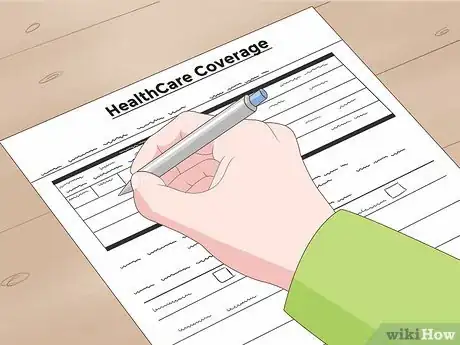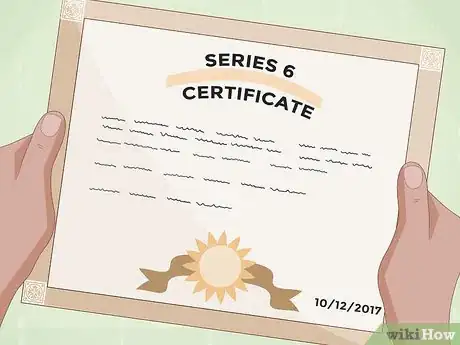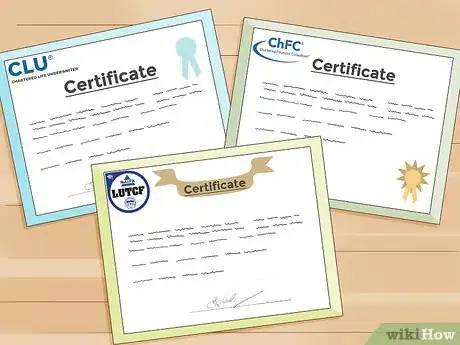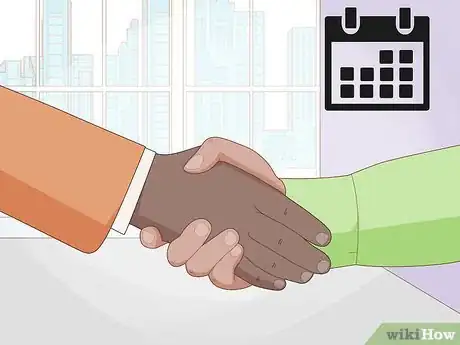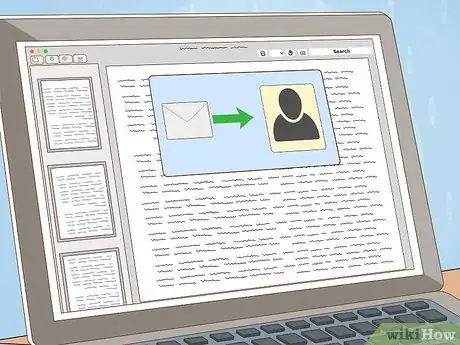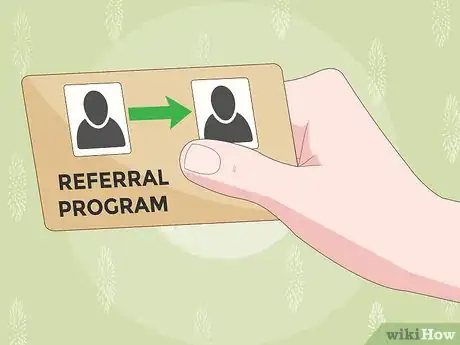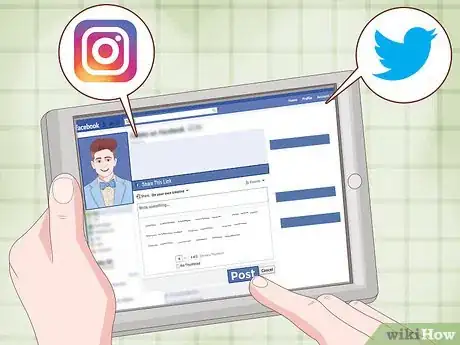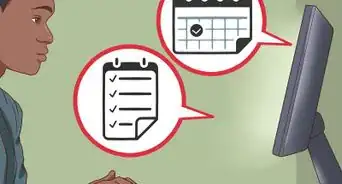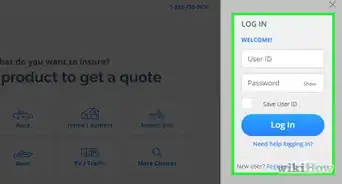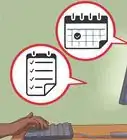This article was co-authored by wikiHow Staff. Our trained team of editors and researchers validate articles for accuracy and comprehensiveness. wikiHow's Content Management Team carefully monitors the work from our editorial staff to ensure that each article is backed by trusted research and meets our high quality standards.
There are 12 references cited in this article, which can be found at the bottom of the page.
wikiHow marks an article as reader-approved once it receives enough positive feedback. This article received 11 testimonials and 86% of readers who voted found it helpful, earning it our reader-approved status.
This article has been viewed 210,464 times.
Learn more...
Selling insurance has grown into a multi-billion dollar industry, and knowing how to sell insurance can be a lucrative career. You just have to have the right marketing strategies down to grow your business and become an effective sales person. Diversify your approach to ensure you’re training yourself appropriately, covering all marketing bases, reaching all customers, and maximizing your business.
Steps
Qualifying to Sell Insurance
-
1Apply for the state licensing. Make sure that you have the appropriate licenses in order to be able to sell life, health, and/or property and casualty insurance. You can obtain your state licensing through numerous testing companies and centers. Most require 40 hours of study before you can sit and take the test. There are also timing restrictions between opportunities to take the exam if you do not pass it on the first try.[1]
- Formal education is not a prerequisite for selling insurance.
-
2Get a Series 6 certification. The Series 6 is certification that measures whether a person beginning in the financial industry has investment and contract competency.[2] Some forms of insurance, like variable life insurance, require a Series 6 to solicit, purchase, and sell. While the Series 6 is designed more for traditional investments like mutual funds and annuities, it also covers life insurance that acts as an investment.[3]Advertisement
-
3Obtain supplementary insurance certifications. Having a few extra certifications displays your personal investment into understanding the intricacies of insurance, as well as your desire to understand every way to help your customers. Think of it as continuing education, and a way to stand out above other agents. Here are a few options:
- The Life Underwriter Training Council Fellow (LUTCF) focuses on various insurance principles (e.g. insurance organization, retirement, estate planning) and ethics related to client's needs.
- A person with a Chartered Financial Consultant (ChFC) certification has skills in not only insurance, but also various investment vehicles.
- The Chartered Life Underwriter (CLU) course covers life insurance law and customers’ insurance needs.[4]
Learning About Clients
-
1Ask questions that make people think about insurance. Many people take insurance for granted, but if they see danger or potential hazard in their future, they’re more likely to consider buying insurance. Insurance doesn’t even have to be mentioned.[5] They should be prompted with a question related to their situation, as well as the insurance you're attempting to sell.
- Potential house insurance questions:
- What’s the most valuable thing you have in your house?
- Have the recent floods been anywhere near your house?
- Potential life insurance questions:
- How long do you think your savings would work for your family if you passed?
- Are you aware funerals can cost nearly $10,000?![6]
- Potential disability insurance questions:
- Could you continue your physically demanding job if you were permanently injured?
- If you get injured and can't work for a long period of time, can your spouse's salary support you?
- Potential house insurance questions:
-
2Learn personal details about your clients. View things from their perspective to understand their problems and deliver possible solutions. Unique insurance ideas targeted directly at your customers’ needs shows your passion for learning about them. Being their friends could help lead to a more lucrative connection.[7]
- Did your clients just have a child for whom they might want life insurance?
- Have they recently thought about a travel trailer or camper?
- Are they really into boats and jet-skis? If so, you could insure the vehicles as well as review some health insurance options.
-
3Schedule an annual meeting with your current customer base. Re-examine their coverage and use this as an opportunity to up-sell. You may find new reasons they are unsatisfied with current coverage, or ways to combine coverage currently not under your purview. Some companies also offer a multi-line discount, so this is another topic to discuss with your clients.
Marketing Your Insurance Business
-
1Meet and greet as much as possible. Talk to the socially awkward, the most popular, and anyone else you can. Provide a firm handshake. Meet everyone you can, and try your best to remember their names. People feel obligated to learn your name if you are already calling them by their first name.[8]
- Acclimate to local customs when talking to new people. The more they feel similar to you, the more likely they are to remember you.
-
2Be someone others remember. Whether you dress a certain way, have a catchphrase, or market yourself in a memorable manner, it’s important for your name to be easily recalled. Stand out from the crowd by being intriguing and unique, but not weird. [9] Try a few of the following examples or use them as potential inspiration:
- Wear vibrant bow ties with your outfits.
- Saturate the market with the same billboard.[10]
- Get an 800 number that spells out something easy to remember. Maybe something like 1-800-INS-URES is available?
-
3Find out if your parent insurance company offers a direct mail program. This is a low cost per person contact method for potential customers, as well as a nice way to keep in contact with your current client base. Managing customer relationships can facilitate new clients seeing a business they may not be aware of, and your current clients are reminded you’re always there.[11]
-
4Don't rule out cold calling. Some people simply like to talk on the phone instead of receiving postcards, going to businesses, or getting emails. Be cautious, however, and invest in leads before you start trying out this cheap, sometimes effective sales method. Without leads you could have a much lower success rate than you normally would.
- Be sure to keep track of who you’ve called. There is no better way to annoy someone, even a potential customer, than to call them multiple times when they’ve already heard your pitch.
- Find a way to connect over the phone. Listen for contextual clues and relate to what they know.
- Do research before calling. Look for social medial profiles or business websites before making the call, and you’ll likely understand the other person better.[12]
Expanding Your Network
-
1Collaborate with a larger company. Become an agent of a well-known insurance company, and you can grow your business in part through familiarity of that company's name. Pick a company that is really trying to grow their market. This means their rates are competitive.
-
2Sign up with a local networking group. Groups such as Kiwanis, Chamber of Commerce or Business Networking International are great starts. Growing through lead referral is the cheapest and most cost-effective way to grow your business. Try a few events related to local schools like school boards, sporting events, and band competitions.[13]
-
3Consider working on a referral programs. There will be incentives to current customers and business colleagues who know what you do to refer their friends and acquaintances. Advertise the potential referral on all your social media profiles.
- Create referral cards with your agency's information and the customer's hand-written name. That way the customer can hand them out to whomever they desire.
- Include requests for referrals on all possible communication. If you send an email or a letter, be sure to ask your clients to refer you to someone who could use your services.
- Use your social media profiles to specifically thank anyone who refers you.
- Be sure to check with state and local law regarding referrals. Some states have specific guidelines that must be strictly adhered to in order to make everything legal.
-
4Involve yourself with the community. By linking up with local businesses and causes, it shows a desire to improve the area and the lives of the people within. Like-minded clients will want to refer or do business with someone who shares their interests.[14]
- Participate in local charity events by volunteering time or sponsorship in exchange for exposure.
- Volunteer within the community somewhere like a Big Brothers, Big Sisters.
Connecting to New Clients via Social Media
-
1Create a website. If you are already a part of a larger company, they can usually help issue a page on their site. But if you are an independent agent, you have the liberty to create and design your website to your creative specifications. Check with your state’s Department of Insurance website guidelines to ensure you’re not creating anything inappropriate or spending unnecessary money on development.[15]
- Include a section that answers frequently asked insurance questions.
- Provide news-letter or email services that a client can sign up for, and receive periodic information about what your insurance agency provides.
- Be sure to include an easy way to reach you by phone and email.
-
2Cultivate a professional social network presence. Facebook, Twitter, Instagram, any other social media platform is a good way to make friends, get new clients, and obtain free advertising. The advertising works well on these platforms because your closest family and friends work help get potential new clients.
- Actively post and share relevant information with your readers.
- Post insurance related pointers based upon current events like large storms or changing road conditions.[16]
- Keep your hours of operation current, as well as your contact and address information.
-
3Follow prospective businesses and clients online. With your professional account, follow others and engage them frequently. Like and comment on their posts. Retweet information that could relate to your business. Find ways to engage them whenever possible.[17]
-
4Use LinkedIn to follow up. While immediate connections via traditional social media may be somewhat stigmatized, connecting via LinkedIn is this generation’s way of handing out a business card. After you’ve met someone face-to-face, make an immediate LinkedIn connection. View their LinkedIn profile for similar connections to see if stronger professional connections can bridge the gap towards obtaining new business.
- Challenge yourself to link to a specific number of new business connections in a defined time period.[18]
Community Q&A
-
QuestionHow should I market my business?
 Community AnswerMarket your business in as many ways as possible. Ensure you spend time in print as well as online. Be original and memorable.
Community AnswerMarket your business in as many ways as possible. Ensure you spend time in print as well as online. Be original and memorable. -
QuestionHow can you increase your client numbers?
 Community AnswerJoin local civic organizations and attend events. You will meet a lot of people this way. It may also be beneficial to offer referral services so others can do work for you.
Community AnswerJoin local civic organizations and attend events. You will meet a lot of people this way. It may also be beneficial to offer referral services so others can do work for you. -
QuestionHow can I sell an education policy?
 Community AnswerYes. Insurance salespeople with the appropriate credentials and certification can sell college savings plans like 529 accounts and trusts.
Community AnswerYes. Insurance salespeople with the appropriate credentials and certification can sell college savings plans like 529 accounts and trusts.
References
- ↑ http://www.floridainsurancelicense.com/requirements.aspx
- ↑ http://www.finra.org/industry/series6
- ↑ http://www.finra.org/industry/series6
- ↑ http://www.financialplannerworld.com/life-insurance-annuities-producer/
- ↑ http://www.insurancejournal.com/magazines/features/2013/08/19/301659.htm
- ↑ https://www.parting.com/blog/what-costs-are-associated-with-a-traditional-funeral-service/
- ↑ http://www.insurancejournal.com/magazines/features/2013/08/19/301659.htm
- ↑ http://www.insurancesplash.com/blog/insurance-networking-tips/
- ↑ http://www.insurancesplash.com/blog/insurance-networking-tips/
- ↑ http://www.otmj.com/alexander-shunnarah/
- ↑ http://www.crmtrends.com/directmarketing.html
- ↑ https://www.entrepreneur.com/article/224931
- ↑ http://www.insurancesplash.com/blog/insurance-networking-tips/
- ↑ http://www.insurancejournal.com/magazines/features/2013/08/19/301659.htm
- ↑ http://www.insurance.ca.gov/0250-insurers/0500-legal-info/0200-regulations/
- ↑ http://www.outboundengine.com/blog/how-insurance-agents-use-social-media-marketing-to-increase-referrals/
- ↑ http://www.insurancesplash.com/blog/insurance-networking-tips/
- ↑ http://www.insurancesplash.com/blog/insurance-networking-tips/
About This Article
If you’re thinking about selling insurance, start by taking the required tests in order to obtain the appropriate licenses from your state. Then, apply for licenses to sell life, health and/or property and casualty insurance. Additionally, consider obtaining supplementary certifications like the Chartered Financial Consultant certification to sell various investment vehicles along with insurance. Once you have the right certifications, market your insurance business by becoming an agent of a well-known insurance company with competitive rates. For more advice, including how to grow your insurance business by expanding your network, keep reading.
